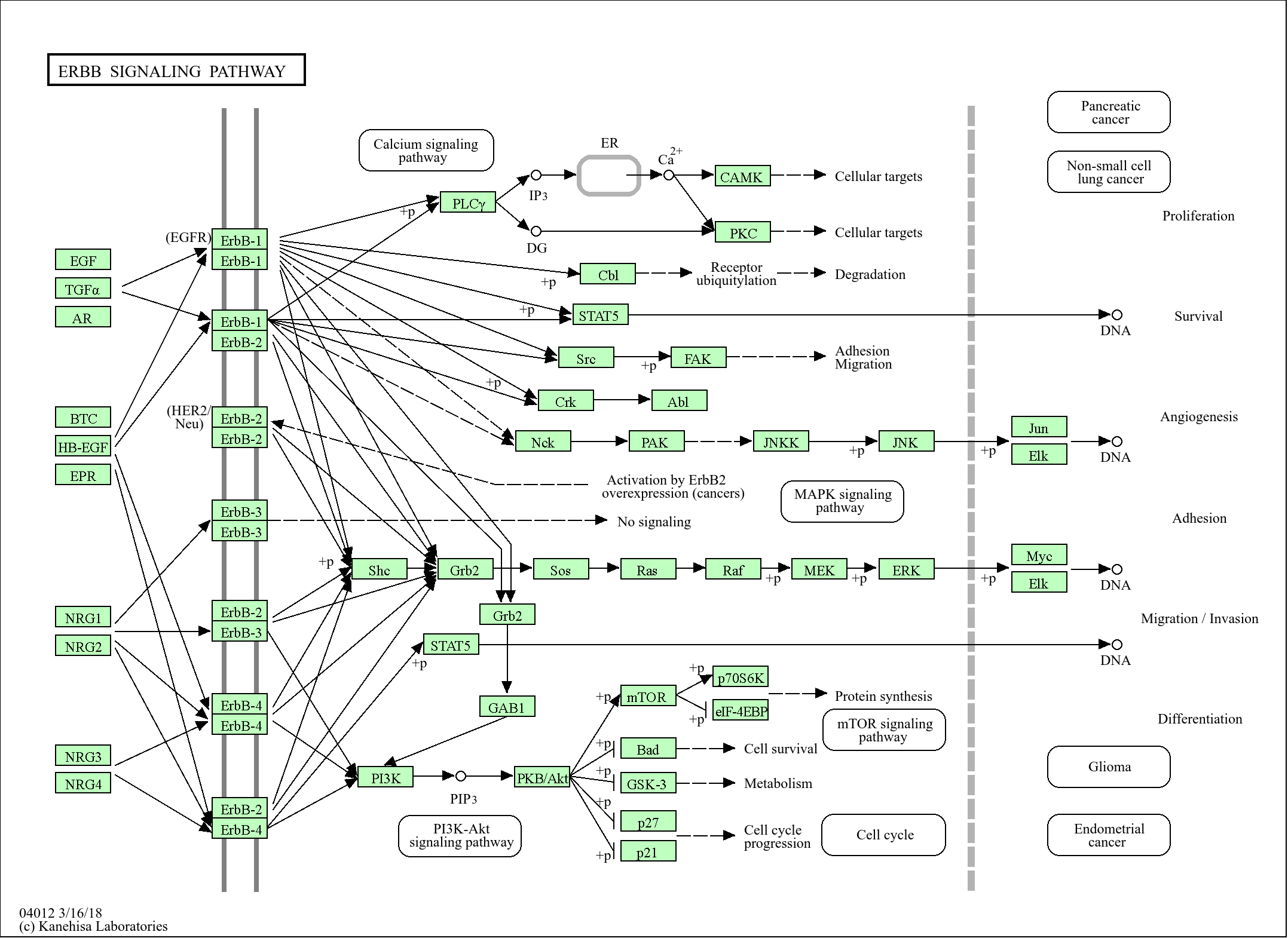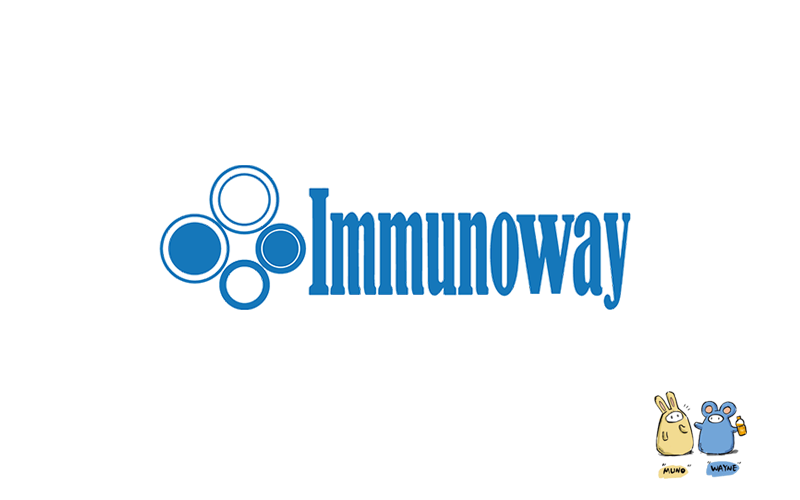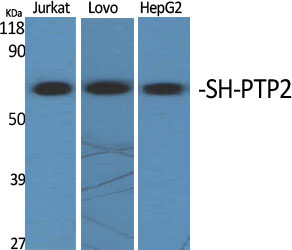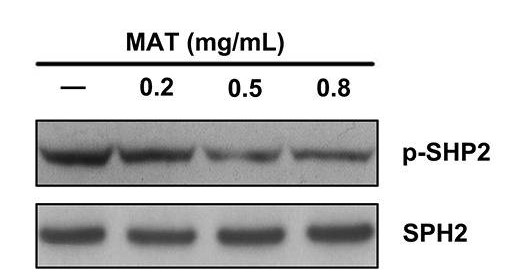
Catalog: YT4293
Size
Price
Status
Qty.
200μL
$450.00
In stock
0
100μL
$280.00
In stock
0
40μL
$150.00
In stock
0
Add to cart


Collected


Collect
Main Information
Target
SH-PTP2
Host Species
Rabbit
Reactivity
Human, Mouse, Rat
Applications
WB, IHC, IF, ELISA
MW
72kD (Observed)
Conjugate/Modification
Unmodified
Detailed Information
Recommended Dilution Ratio
WB 1:500-1:2000; IHC 1:100-1:300; ELISA 1:20000; IF 1:50-200
Formulation
Liquid in PBS containing 50% glycerol, 0.5% BSA and 0.02% sodium azide.
Specificity
SH-PTP2 Polyclonal Antibody detects endogenous levels of SH-PTP2 protein.
Purification
The antibody was affinity-purified from rabbit antiserum by affinity-chromatography using epitope-specific immunogen.
Storage
-15°C to -25°C/1 year(Do not lower than -25°C)
Concentration
1 mg/ml
MW(Observed)
72kD
Modification
Unmodified
Clonality
Polyclonal
Isotype
IgG
Related Products
Antigen&Target Information
Immunogen:
The antiserum was produced against synthesized peptide derived from human SHP-2. AA range:546-595
show all
Specificity:
SH-PTP2 Polyclonal Antibody detects endogenous levels of SH-PTP2 protein.
show all
Gene Name:
PTPN11
show all
Protein Name:
Tyrosine-protein phosphatase non-receptor type 11
show all
Other Name:
PTPN11 ;
PTP2C ;
SHPTP2 ;
Tyrosine-protein phosphatase non-receptor type 11 ;
Protein-tyrosine phosphatase 1D ;
PTP-1D ;
Protein-tyrosine phosphatase 2C ;
PTP-2C ;
SH-PTP2 ;
SHP-2 ;
Shp2 ;
SH-PTP3
PTP2C ;
SHPTP2 ;
Tyrosine-protein phosphatase non-receptor type 11 ;
Protein-tyrosine phosphatase 1D ;
PTP-1D ;
Protein-tyrosine phosphatase 2C ;
PTP-2C ;
SH-PTP2 ;
SHP-2 ;
Shp2 ;
SH-PTP3
show all
Database Link:
Background:
The protein encoded by this gene is a member of the protein tyrosine phosphatase (PTP) family. PTPs are known to be signaling molecules that regulate a variety of cellular processes including cell growth, differentiation, mitotic cycle, and oncogenic transformation. This PTP contains two tandem Src homology-2 domains, which function as phospho-tyrosine binding domains and mediate the interaction of this PTP with its substrates. This PTP is widely expressed in most tissues and plays a regulatory role in various cell signaling events that are important for a diversity of cell functions, such as mitogenic activation, metabolic control, transcription regulation, and cell migration. Mutations in this gene are a cause of Noonan syndrome as well as acute myeloid leukemia. [provided by RefSeq, Aug 2016],
show all
Function:
Catalytic activity:Protein tyrosine phosphate + H(2)O = protein tyrosine + phosphate.,Disease:Defects in PTPN11 are a cause of juvenile myelomonocytic leukemia (JMML) [MIM:607785]. JMML is a pediatric myelodysplastic syndrome that constitutes approximately 30% of childhood cases of myelodysplastic syndrome (MDS) and 2% of leukemia. It is characterized by leukocytosis with tissue infiltration and in vitro hypersensitivity of myeloid progenitors to granulocyte-macrophage colony stimulating factor.,Disease:Defects in PTPN11 are a cause of Noonan-like syndrome [MIM:163955]; also known as Noonan-like/multiple giant cell lesion syndrome. It is an autosomal dominant disorder characterized by Noonan features associates with giant cell lesions of bone and soft tissue.,Disease:Defects in PTPN11 are the cause of LEOPARD syndrome [MIM:151100]. It is an autosomal dominant disorder allelic with Noonan syndrome. The acronym LEOPARD stands for lentigines, electrocardiographic conduction abnormalities, ocular hypertelorism, pulmonic stenosis, abnormalities of genitalia, retardation of growth, and deafness.,Disease:Defects in PTPN11 are the cause of Noonan syndrome 1 (NS1) [MIM:163950]. Noonan syndrome (NS) is a disorder characterized by dysmorphic facial features, short stature, hypertelorism, cardiac anomalies, deafness, motor delay, and a bleeding diathesis. It is a genetically heterogeneous and relatively common syndrome, with an estimated incidence of 1 in 1000-2500 live births. Mutations in PTPN11 account for more than 50% of the cases. Rarely, NS is associated with juvenile myelomonocytic leukemia (JMML). NS1 inheritance is autosomal dominant.,Domain:The SH2 domains repress phosphatase activity. Binding of these domains to phosphotyrosine-containing proteins relieves this auto-inhibition, possibly by inducing a conformational change in the enzyme.,Function:Acts downstream of various receptor and cytoplasmic protein tyrosine kinases to participate in the signal transduction from the cell surface to the nucleus.,PTM:Phosphorylated on Tyr-546 and Tyr-584 upon receptor protein tyrosine kinase activation; which creates a binding site for GRB2 and other SH2-containing proteins.,similarity:Belongs to the protein-tyrosine phosphatase family. Non-receptor class 2 subfamily.,similarity:Contains 1 tyrosine-protein phosphatase domain.,similarity:Contains 2 SH2 domains.,subunit:Interacts with phosphorylated LIME1 and BCAR3. Interacts with SHB and INPP5D/SHIP1 (By similarity). Interacts with PTPNS1 and CD84. Interacts with phosphorylated SIT1 and MPZL1. Interacts with FCRL3, FCRL4, FCRL6 and ANKHD1.,tissue specificity:Widely expressed, with highest levels in heart, brain, and skeletal muscle.,
show all
Cellular Localization:
Cytoplasm . Nucleus .
show all
Tissue Expression:
Widely expressed, with highest levels in heart, brain, and skeletal muscle.
show all
Research Areas:
>>Ras signaling pathway ;
>>Phospholipase D signaling pathway ;
>>Axon guidance ;
>>C-type lectin receptor signaling pathway ;
>>JAK-STAT signaling pathway ;
>>Natural killer cell mediated cytotoxicity ;
>>Leukocyte transendothelial migration ;
>>Neurotrophin signaling pathway ;
>>Adipocytokine signaling pathway ;
>>Insulin resistance ;
>>Epithelial cell signaling in Helicobacter pylori infection ;
>>Pathogenic Escherichia coli infection ;
>>Herpes simplex virus 1 infection ;
>>Proteoglycans in cancer ;
>>Chemical carcinogenesis - reactive oxygen species ;
>>Renal cell carcinoma ;
>>Chronic myeloid leukemia ;
>>PD-L1 expression and PD-1 checkpoint pathway in cancer
>>Phospholipase D signaling pathway ;
>>Axon guidance ;
>>C-type lectin receptor signaling pathway ;
>>JAK-STAT signaling pathway ;
>>Natural killer cell mediated cytotoxicity ;
>>Leukocyte transendothelial migration ;
>>Neurotrophin signaling pathway ;
>>Adipocytokine signaling pathway ;
>>Insulin resistance ;
>>Epithelial cell signaling in Helicobacter pylori infection ;
>>Pathogenic Escherichia coli infection ;
>>Herpes simplex virus 1 infection ;
>>Proteoglycans in cancer ;
>>Chemical carcinogenesis - reactive oxygen species ;
>>Renal cell carcinoma ;
>>Chronic myeloid leukemia ;
>>PD-L1 expression and PD-1 checkpoint pathway in cancer
show all
Signaling Pathway
Organismal Systems >> Immune system >> Natural killer cell mediated cytotoxicity
Organismal Systems >> Immune system >> T cell receptor signaling pathway
Organismal Systems >> Immune system >> Leukocyte transendothelial migration
Organismal Systems >> Endocrine system >> Adipocytokine signaling pathway
Organismal Systems >> Nervous system >> Neurotrophin signaling pathway
Human Diseases >> Cancer: overview >> PD-L1 expression and PD-1 checkpoint pathway in cancer
Human Diseases >> Cancer: specific types >> Chronic myeloid leukemia
Human Diseases >> Cancer: specific types >> Renal cell carcinoma
Environmental Information Processing >> Signal transduction >> Ras signaling pathway
Environmental Information Processing >> Signal transduction >> JAK-STAT signaling pathway
Environmental Information Processing >> Signal transduction >> Phospholipase D signaling pathway
Reference Citation({{totalcount}})
Catalog: YT4293
Size
Price
Status
Qty.
200μL
$450.00
In stock
0
100μL
$280.00
In stock
0
40μL
$150.00
In stock
0
Add to cart


Collected


Collect
Recently Viewed Products
Clear allPRODUCTS
CUSTOMIZED
ABOUT US
Toggle night Mode
{{pinfoXq.title || ''}}
Catalog: {{pinfoXq.catalog || ''}}
Filter:
All
{{item.name}}
{{pinfo.title}}
-{{pinfo.catalog}}
Main Information
Target
{{pinfo.target}}
Reactivity
{{pinfo.react}}
Applications
{{pinfo.applicat}}
Conjugate/Modification
{{pinfo.coupling}}/{{pinfo.modific}}
MW (kDa)
{{pinfo.mwcalc}}
Host Species
{{pinfo.hostspec}}
Isotype
{{pinfo.isotype}}
Product {{index}}/{{pcount}}
Prev
Next
{{pvTitle}}
Scroll wheel zooms the picture
{{pvDescr}}











.jpg)







